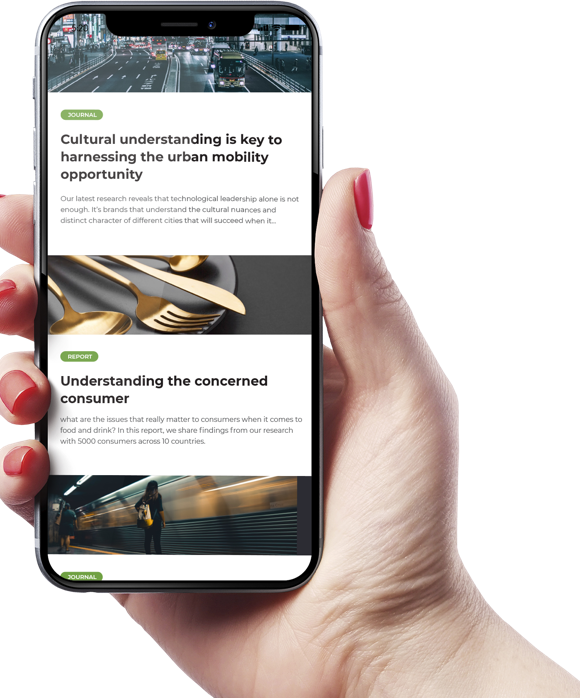According to research from Dentsu, understanding what represents a permanent shift in behavior versus a temporary change is the top challenge facing marketers right now. Our latest research study sought to answer this question and separate the long-term trends from the short-term fads. In this blog post, we’ll summarize the key trends from the full report: Which behaviors will stick and which will subside in a world without restrictions?
The report identified 4 key behaviors that will stick in a world without restrictions, as well outlining areas that represent opportunity for innovation and those behaviors that are less likely to become lasting changes.
The 4 key behaviors from the report are:
- Cooking from scratch
- Creating special occasions at home with food and drink
- Learning new skills online
- Online shopping.
Read the summary below or download the full report to learn where behaviors across a range of categories placed. The report also explores how the key behaviors and areas of innovation explored in this blog post will develop in future, pinpointing trends for brands to capitalize on.
Our approach to understanding sticking power
The research was carried out with 3,400 consumers across 10 markets (US, UK, Singapore, China, India, Indonesia, Japan, the Philippines, Thailand and Vietnam). The approach combined consumer views about the future, with metrics to assess long-term sticking power, namely how well different activities deliver against a range of attributes that are important to consumers when adopting and sustaining new behaviors.
Key behaviors for the future
1) Cooking from scratch
In the food and drink space, the existing trend towards cooking from scratch has been further accelerated and should be considered a key behavior for the future. When asked what activities they planned to continue doing as a result of doing them more during the pandemic, 85% of consumers said cooking from scratch.
2) Creating special occasions at home with food and drink
Interestingly, the research also found that creating special occasions at home with food is another behavior that is set to last, suggesting an opportunity for indulgent supermarket dine-in deals and DIY restaurant meal kits well beyond the pandemic. These behaviors have clear implications for hospitality. 57% of consumers say that in a world without restrictions, they expect to be going out for drinks less than before the pandemic and we see a similar picture when it comes to eating out (53%).
3) Learning new skills online
Lockdowns saw consumers learning new skills online as a way to keep themselves entertained. Interestingly, this is key behavior for the future, although this is a trend that has most potential in Asia. In APAC and South East Asia, online behaviors such as learning new skills digitally and gaming increased to a greater extent than in the US and the UK, despite living under restrictions for a shorter period of time.

4) Online shopping
Unsurprisingly, online shopping for products other than groceries is another key behavior for the future. The impact of this on bricks and mortar stores will be significant, with over half of consumers (51%) telling us that in a world without restrictions, they expect to be physically browsing stores less frequently than before the pandemic. There are other challenges for retailers to navigate. With 22% of consumers across the 10 markets we surveyed having moved further away from work since the start of the pandemic (with the exception of Singapore) and 52% saying they intend to use public transport less than before COVID, companies will have to reconsider their retail footprint.

Opportunities for innovation
The research also revealed opportunities for innovation. These include better supporting consumers with:
- Their mental health
- Eating healthily
- Online video streaming.
These are areas where there is a strong desire amongst consumers to continue the activity, but it doesn’t deliver as strongly against the key attributes that matter to consumers when adopting and sustaining new behaviors. As such, improvement with the existing products and services is needed to see sustained behavioral change, representing an opportunity for brands.
Which behaviours will stick and which will subside in a world without restrictions?
Download the full report to see where behaviours across a range of categories placed and to learn more about how key behaviours will develop in future.
Download nowShort-term solutions for Covid-only
Activities such as domestic holidays and working from home are likely to be short-term solutions for Covid-only. In some cases, working from home was an enforced behavior and is not feasible in the long term. Only 62% of consumers say that they are likely to continue working from home in future. Whilst working from home is perceived to be time saving and convenient, some consumers don’t find it very rewarding or enjoyable, reflecting much of the current discourse in the media about workers being zoomed out and missing social interaction. As such, flexible, rather than fully remote working is likely to have a more lasting impact.
Get regular insights
Keep up to date with the latest insights from our research as well as all our company news in our free monthly newsletter.

Low potential for lasting behavioral change
There’s also low potential for lasting behavioral change in the areas of socializing online, drinking alcohol at home and ordering takeout, which consumers are less likely to want to continue versus other behaviors in the study, and don’t deliver as strongly against the key attributes for adopting and sustaining behaviors.
Download the full report
To read the full findings, download the full report.


 Senior Marketing Executive
Senior Marketing Executive Sales & Marketing
Sales & Marketing General Manager PR -Internal Communications & Government Affairs
General Manager PR -Internal Communications & Government Affairs Vital Strategies
Vital Strategies
 Customer Intelligence Director
Customer Intelligence Director